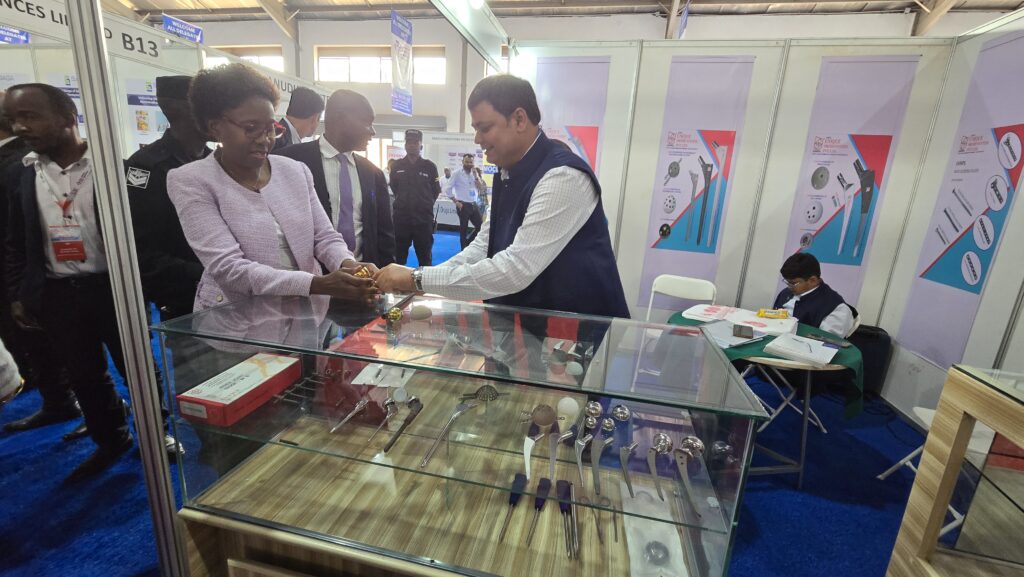
KAMPALA.
The Minister for Health, Dr. Jane Ruth Aceng, has called on Indians in the medical sector to invest in Uganda, citing available favourable incentives.
‘Health is fundamental, and without health, we can not do so many different things, but we are also very aware that there are other industries in other countries that are already developed, and we need to have strong collaborations to foster more development of the pharmaceutical industry in Uganda,” Dr Acheng said this during the MedTech-Uganda and Uganda’s pharma Expo at UMA on Tuesday in Kampala.
She emphasised that Indian Pharmaceutical companies should take advantage of incentives in Uganda’s growing health industry.
“Right now, 85 percent of the pharmaceutical products are imported; we want to move away from imports to have products manufactured within Uganda,” the minister said ,adding
“I am excited today to learn of the various innovations that will be taking place here, but also the interests of the various industries to set up base in Uganda, so that we expand on Buy Uganda Build Uganda.”
Aceng said President Museven puts emphasis on the pharmaceutical industry. “ No wonder if you set up manufacturing in the country, your taxes are low, and you are given a lot of benefits,”
Mr Denis Mwesigwa, the Chief Inspector of Drugs at the National Drug Authority [NDA], assured exhibitors to fast track product certification to support growth in Uganda’s pharmaceutical sector.
Shri Trushar Upadhyay, from the Federation of Indian Chamber of Commerce and Industries, said the Expo will impose a great change and improve the health system in Uganda, noting that the exhibition has come with the latest technology needed and the innovations in the drug sector.
The Indian High Commissioner to Uganda, Upender Singh Rawat, said India and Uganda have a very long-standing relationship going for over 100 years based on a shared history of colonialism, and there is increasing cooperation in health, education, and trade.